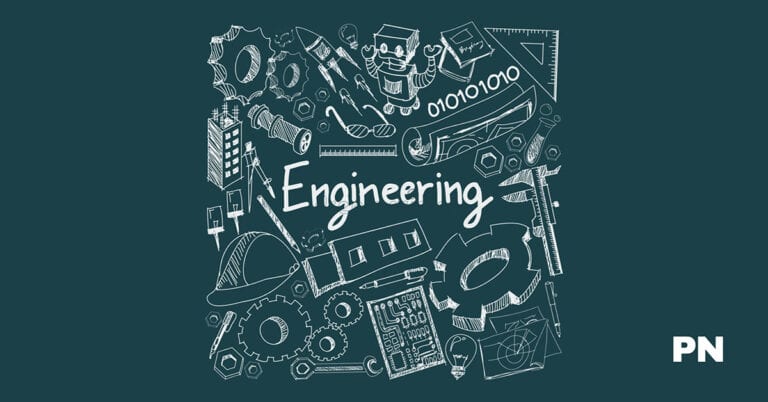17 High-Income Skills in 2024 (In Demand)

In 2024, your ability to pivot into high-demand roles hinges on having the right high-income skills.
These competencies would empower you to excel in a dynamic job market, often translating to boosting earnings and standing out among your peers.
How do I know this?
Well, I’m a self-taught marketer with seven years of experience in SEO, content marketing, and copywriting. And I’ve consistently earned over $100k yearly since 2020 with these skills.
So, I know something about high-income skills and how it can dramatically change your life for good.
It changed mine.
I list about 17 high-income skills you can learn to build a life-changing business or give you an advantage in the competitive job market.
17 High-Income Skills To Learn Right Now
Here’s a list of high-income skills to learn in 2024 that could significantly enhance your earning potential.
| Skill | Average Earning Per Year |
|---|---|
| Copywriting | $58,000+ |
| SEO (Search Engine Optimization) | $59,000+ |
| Video Editing | $57,500+ |
| Coding and Software Development | $105,000+ |
| Social Media Marketing | $54,000+ |
| Data Analysis | $62,000+ |
| Content Marketing/Creation | $63,000+ |
| Project Management | $75,000+ |
| Web Development & Design | $69,000+ |
| Graphic Design | $50,000+ |
| Sales Closer (High-Ticket Closing) | $85,000+ |
| Email Marketing | $65,000+ |
| Paid Advertising | $67,000+ |
| UX and UI Design | $97,000+ |
| Financial Market Trading | Variable (Commission based) |
| Cybersecurity | $90,000+ |
| AI and Machine Learning | $112,000+ |
The earnings quoted above are just averages; your income may vary based on your expertise, experience, and the demand for these skills in your location. The cool thing is that most of these high-income skills can be learned without a degree and will still be in high demand for the next 10 years. Crazy stuff!
1. Copywriting
Copywriting is the art and science of strategically delivering words that get people to act. It is a high-income skill because it directly contributes to a company’s revenue through advertising and marketing.
The effectiveness of copywriting can often be the difference between a product selling or not.
Taking a look at the earning potential:
- Weekly: Depending on the complexity of projects and experience, earnings can range from $500 to over $2000.
- Monthly: Copywriters can earn between $2000 and $8000.
- Yearly: The annual income varies widely, with an average range of $52,000 to $100,000. Highly skilled copywriters can earn significantly more.
Some related copywriting job titles are content writer, SEO copywriter, and creative director.
You can read my post on “Is Copywriting a High-Income Skill?” to learn more about your earning potential and how rich you could be as a copywriter.
Here’s how to get started with copywriting:
- Improve Your Skills:
You can take online courses, read books on copywriting, practice writing different copy forms, and study successful copywriting examples.
Analyzing effective advertisements, sales letters, and marketing campaigns can provide invaluable insights into what works and why. Seeking feedback on your copywriting efforts, whether from mentors, peers, or online communities, can help you identify areas for improvement and refine your skills further.
- Build a Portfolio:
Create a collection of writing samples to showcase your work to potential clients or employers. Include diverse projects demonstrating your versatility and proficiency in different styles and industries.
- Network:
Connect with other copywriters, attend industry workshops, and join social media groups related to copywriting. Building relationships with fellow professionals provides support and camaraderie and opens doors to collaboration opportunities and potential clients.
- Use Online Platforms to Land Jobs
Firstly, utilize job platforms such as LinkedIn and Indeed to discover relevant job listings. These platforms often feature a range of opportunities from companies seeking skilled copywriters.
Secondly, consider exploring freelance websites like Upwork and Freelancer.
These platforms allow you to showcase your expertise and offer your services to clients seeking copywriting assistance.
2. SEO
Search Engine Optimization (SEO) is a critical digital marketing strategy focused on increasing a website’s visibility in search engine results pages (SERPs).
As an SEO expert, your goal is to optimize web content to rank higher for specific keywords, thus driving organic traffic and increasing the potential for revenue growth.
| Earnings Outlook | SEO Expert |
|---|---|
| Weekly | ~$1,000 – $3,000 |
| Monthly | ~$4,000 – $12,000 |
| Yearly | ~$48,000 – $144,000 |
The above figures can vary based on experience, location, and the size of your company.
SEO is a high-income skill due to:
- Demand: As businesses compete online, they invest in SEO experts.
- ROI: Effective SEO can greatly improve a site’s profitability.
- Specialization: Extensive knowledge of SEO tools and strategies is required.
Some related SEO job titles are content strategist, SEO analyst, and link-building specialist.
To start learning SEO, consider the following:
- Learn the Basics:
Start by familiarizing yourself with the basic concepts of SEO. Plenty of beginner-friendly resources, including articles, tutorials, and videos, are available online. Look for reputable sources explaining keywords, on-page optimization, and backlinking.
- Take an SEO Course (optional):
Consider enrolling in a structured SEO course to understand the subject comprehensively. Many online platforms offer beginner-level courses that cover the fundamentals of SEO and provide hands-on exercises to help you apply what you’ve learned.
- Practice with Your Website:
If you have a personal website or blog, use it as a testing ground to practice your SEO skills. If you don’t, then it’s best to create one.
Then, you start experimenting with optimizing your content for relevant keywords, improving your website’s user experience, and acquiring backlinks from other websites. Hands-on experience is invaluable for solidifying your understanding of SEO concepts.
- Stay Updated:
SEO is constantly evolving, with search engine algorithms frequently being updated. Stay informed about the latest trends, algorithm changes, and best practices by following reputable SEO blogs, attending webinars, and participating in online communities.
- Seek Feedback and Guidance:
Don’t hesitate to seek feedback from more experienced SEO professionals or join online communities where you can ask questions and share insights with others while learning SEO.
Also read: Is Content Marketing a High-Income Skill?
3. Video Editing
Video editing is manipulating and rearranging video shots to make it appealing and more engaging.
It involves selecting and combining shots into sequences and adding effects to enhance the storytelling. This skill is critical for various applications, from films and television to social media content and corporate presentations.
Income Potential for Professional Video Editors:
- Weekly: Approximately $1,000-$2,000
- Monthly: Around $4,000-$8,000
- Yearly: Typically $50,000-$100,000+
Actual salaries may vary based on experience, location, and industry. For detailed salary expectations, refer to our post on video editing as a high-income skill guide.
Some related video editing job titles are film editor, broadcast technician, multimedia artist, and post-production specialist.
Here’s how to get started with video editing skills:
- Choose Your Editing Software:
Select a video editing software that suits your needs and skill level.
For beginners, user-friendly options like iMovie (for Mac users), Windows Movie Maker (for Windows users), or Adobe Premiere Rush are great starting points. These programs offer intuitive interfaces and basic editing tools to help you get started.
- Learn the Basics:
Familiarize yourself with essential functions such as importing footage, trimming clips, adding transitions, and applying basic effects. Look for beginner tutorials online or within the software itself.
- Experiment with Editing:
Dive in and practice assembling clips, adding and removing clips and adjusting durations, cutting between scenes, and arranging footage to tell a story. Play with effects and transitions to see how they enhance your videos.
- Seek Feedback and Learn from Others:
Share your edited videos with friends, family, or online communities for feedback. Look for beginner-friendly resources and communities where you can ask questions and learn from experienced editors.
- Keep Practicing and Experimenting:
Video editing improves with practice, so keep experimenting with new techniques and effects. Don’t be afraid to push your creative boundaries and try new things as you continue learning.
4. Coding and Software Development (Programming)
Coding and software development, commonly known as programming, involve creating, designing, and maintaining software on various devices.
Some related fields and job titles in software development are Software Engineer, Web Developer, Systems Analyst, Application Developer, Database Administrator, and DevOps Engineer.
This highly specialized skill involves using programming languages like Python, which is particularly popular for its ease of use and versatility across different applications.
Earning Potential:
- Weekly: Programmers can earn upwards of $1,500 per week.
- Monthly: On average, monthly earnings may exceed $6,000.
- Yearly: Experienced coders earn $70,000 – $100,000 annually, with specialized developers potentially exceeding these figures.
Tips on Getting Started With Programming:
- Choose a Programming Language:
Start by selecting a programming language suitable for beginners, such as Python or JavaScript. These languages have simple syntax and extensive learning resources.
- Learn the Basics:
Begin with fundamental concepts like variables, data types, control structures (if statements, loops), and functions. Many online platforms, like Codecademy, freeCodeCamp, or the official documentation for your chosen language, offer beginner-friendly tutorials and courses.
- Build Simple Projects:
Apply what you’ve learned by building small projects or applications. Start with basic projects like a to-do list or a simple calculator, then gradually tackle more challenging projects as you gain confidence and skills.
- Learn from Others:
Seek out coding communities and online forums where you can ask questions, share your progress, and learn from others.
Participate in coding meetups, join online coding communities like Stack Overflow or Reddit’s programming subreddits, and follow experienced developers on social media platforms like Twitter or LinkedIn.
5. Social Media Marketing
Social Media Marketing is a critical and lucrative skill in the digital age.
It encompasses strategy development, content creation, and analytics. It’s driven by engaging audiences, driving brand awareness, and unlocking potential revenue streams via platforms like Facebook, Instagram, TikTok, Twitter, and LinkedIn.
Earnings potential:
- Weekly: Approximately $1,050
- Monthly: About $4,333
- Yearly: $52,000 on average
Related roles in Social Media Marketing include Content Strategist, Community Manager, and Social Media Analyst.
Each role demands specific expertise but shares a common goal: captivating an online audience.
To begin your journey in this high-income field:
- Understand Social Media Platforms:
Begin by familiarizing yourself with popular social media platforms like Facebook, Instagram, Twitter, LinkedIn, and TikTok. Understand each platform’s demographics, features, and best practices to tailor your marketing efforts effectively.
- Learn How to Create Compelling Content:
Learn how to develop engaging and relevant content that adds value to your audience by researching and studying what’s working and what’s not.
This could include informative blog posts, eye-catching visuals, entertaining videos, polls, quizzes, or user-generated content. Experiment with different content formats to see what works best for your audience.
- Engage with Your Audience:
Actively engage with your audience by promptly responding to comments, messages, and mentions. Encourage conversations, ask questions, and solicit feedback to foster a sense of community and strengthen relationships with your followers.
- Utilize Paid Advertising:
Explore paid advertising options social media platforms offer to reach a wider audience and achieve your marketing objectives more effectively. Experiment with different ad formats, targeting options, and budget allocations to optimize your campaigns for maximum ROI.
- Stay Updated on Trends:
Follow social media platforms’ latest trends, features, and algorithm changes to stay informed and adapt your strategy accordingly. You can also follow industry news, attend webinars, and participate in online communities.
6. Data Analysis
Data analysis involves examining, cleaning, transforming, and modeling data to discover useful information, inform conclusions, and support decision-making. This skill is a high-income asset because data-driven insights are crucial across industries, influencing strategies and operations.
In 2024, a data analyst’s income is impressive, reflecting the high demand for this expertise. Depending on experience and location, you can expect to earn:
- Weekly: Approximately $1,500-$3,000
- Monthly: Roughly $6,000-$12,000
- Yearly: About $72,000-$144,000
Some related fields and job titles in data analysis are data scientist, business intelligence, and machine learning engineer.
To get started:
- Learn the Basics of Data Analysis:
Understand the fundamental concepts of data analysis, including data types, variables, and statistical measures like mean, median, and mode.
- Choose Your Tools:
Select beginner-friendly data analysis tools like Microsoft Excel, Google Sheets, or online platforms like Tableau Public or Power BI Desktop.
- Acquire Data:
Gather data from various sources such as spreadsheets, databases, or online repositories. Start with small datasets to practice your analysis skills.
- Perform Basic Analysis:
Explore your data using simple techniques like sorting, filtering, and basic calculations. Visualize your data using charts and graphs to identify patterns and trends.
- Practice with Projects:
Apply your skills by working on data analysis projects. Start with simple projects like analyzing sales data or survey responses, then gradually tackle more complex projects as you gain confidence.
- Seek Learning Resources:
Take advantage of beginner-friendly tutorials, courses, and books on data analysis. Websites like Khan Academy, Coursera, and Udemy offer comprehensive courses for beginners.
7. Content Marketing/Creation
Content marketing and creation encompass strategically crafting and distributing valuable, relevant content to attract a clearly defined audience. It’s a high-income skill because it is crucial in building brand awareness, engaging online communities, and driving customer action.
Income Potential:
- Weekly: Depending on experience, you could earn between $1,000 and $1,925.
- Monthly: Average earnings may range from $4,000 to $7,700.
- Yearly: Content marketers/creators can earn $48,000 to $92,400 annually.
This range is indicative and varies based on location, industry, and level of expertise.
Related Job Titles:
- Social Media Manager
- Digital Marketing Manager
- Content Strategist
To begin your journey in this high-income field:
- Understand Your Audience:
Identify your target audience and understand their needs, interests, and pain points. This will guide your content creation efforts and ensure that your content resonates with your audience.
- Choose Your Content Platforms:
Decide which platforms you’ll use to publish and distribute your content. Common platforms include your blog, social media channels, YouTube, or podcasting platforms.
- Define Your Content Goals:
Clarify your content marketing goals, whether it’s to increase brand awareness, drive website traffic, generate leads, or engage your audience. Having clear goals will help you measure the success of your content efforts.
- Develop a Content Strategy:
Create a content strategy that outlines the types of content you’ll create, the topics you’ll cover, and how you’ll distribute and promote your content. Consider content formats (e.g., blog posts, videos, infographics), posting frequency, and content promotion tactics.
- Promote Your Content:
Once you’ve created your content, promote it to reach your target audience. Share your content on social media, engage with relevant communities and forums, and collaborate with influencers or other content creators to expand your reach.
- Measure and Analyze Performance:
Track the performance of your content using analytics tools like Google Analytics or social media insights.
Monitor metrics such as website traffic, engagement, conversions, and social media metrics to evaluate the effectiveness of your content and make data-driven decisions for improvement.
8. Project Management
Project management is leading a team to achieve specific goals and meet success criteria at a specified time.
Project management involves planning, organizing, motivating, and controlling resources to accomplish a unique objective. A high-income skill, project management is sought after because of its pivotal role in ensuring project success and organizational profitability.
As a project manager, you could potentially earn:
- Weekly: Approximately $2,300
- Monthly: Around $10,000
- Yearly: An average of $120,000
These figures can vary substantially based on industry, location, experience, and certification factors.
In related roles, you might find opportunities as:
- A Scrum Master, focusing on facilitating agile project management.
- An Agile Coach, helping teams implement agile methodologies effectively.
- A Program Manager, overseeing multiple related projects to achieve business benefits.
Also read: Is Project Management a High-Income Skill?
9. Web Development & Design
Web development and design comprise website creation and maintenance, encompassing several aspects such as web design, web publishing, web programming, and database management.
Web development is the coding or programming that enables website functionality, while web design focuses on aesthetics and usability.
This skill set is high-income due to the ever-growing online presence required by businesses; a well-designed, efficiently functioning website is essential to a company’s image and operations.
As a web developer/designer, your earnings can vary widely based on your experience, location, and project complexity. To give you an idea of potential earnings as of the current date:
- Weekly: Averages range from $1,000 to $3,000+
- Monthly: Averages range from $4,000 to $12,000+
- Yearly: Averages range from $52,000 to $150,000+
In related fields, you might come across job titles such as:
- Front-End Developer
- Back-End Developer
- Full-Stack Developer
- UX/UI Designer
- Web Content Manager
To get started in web development and design, you must build a strong foundation in programming languages and design principles. Consider learning HTML, CSS, JavaScript, and frameworks like React or Angular. Familiarity with design software such as Adobe XD or Sketch is also beneficial.
10. Graphic Design
Graphic design is a creative process that combines art and technology to communicate ideas through images, layouts, and printed materials.
It’s a skill that melds visual content to communicate messages.
Designers wield typography, visual arts, and page layout techniques to produce compelling outcomes, often for advertisements, brochures, magazines, and corporate reports.
Why Graphic Design is High-Income:
- Demand: With the growth of digital space, every business seeks to establish a strong online presence, requiring skilled designers.
- Brand Identity: Companies use branding to stand out, relying on designers to create unique identities.
- Versatility: Proficient designers are sought after in multiple industries, from marketing to publishing.
Earnings Potential:
- Weekly: Up to $1,000+
- Monthly: Up to $4,000+
- Yearly: Up to $50,000+
Some related fields and job titles in graphic design are user experience (UX) designer, user interface designer (UI), art director, and creative director.
To get started with this lucrative high-income skill, I’d consider:
- Education: Consider courses in graphic design fundamentals, typography, and digital design tools.
- Portfolio: Build a strong portfolio showcasing various work to attract potential employers or clients.
- Networking: Engage with the design community online and in person for opportunities and mentorship.
To land lucrative jobs, specialize in areas with higher demand, such as digital advertising or product design. Continuous learning is crucial—stay abreast of design trends and software, and also understand the basics of web development to enhance your skill set.
Also read: Is Graphic Design a High-Income Skill?
11. Sales Closer (High-Ticket Closing)
High-ticket closing is a specialized sales skill that centers on securing deals with products or services priced significantly higher than average, often between $1,000 and $10,000+.
This niche demands a blend of confidence, advanced persuasion techniques, and the ability to build strong relationships with potential clients.
Your potential earnings as a high-ticket closer are compelling. On average, figures range within:
- Weekly: $2,400 to $3,100
- Monthly: $10,000 to $13,000
- Annually: figures can exceed $120,000, depending on commission rates and deal frequency.
To get started:
- Understand the Sales Process:
Familiarize yourself with the sales process, including prospecting, qualifying leads, presenting offers, handling objections, and closing sales. Understand the importance of building rapport and trust with potential clients.
- Master Communication Skills:
Develop strong communication skills, including active listening, effective questioning, and persuasive speaking. Learn how to communicate value and overcome objections gracefully.
- Gain experience in a lower-tier sales position:
Consider starting in a lower-tier sales position to gain experience and build expertise. This can provide valuable insights into the sales process and help you develop essential skills for high-ticket sales.
- Seek Feedback and Learn:
After each sales interaction, seek feedback from mentors or peers to identify areas for improvement. Reflect on your performance, learn from your successes and failures, and continuously refine your sales approach.
Obtaining certified sales training which can be a strong leverage point for higher pay.
12. Email Marketing
Email marketing remains a critical skill set. It fundamentally involves the strategic crafting, sending, and analyzing of email campaigns to foster relationships and promote sales or services.
Its classification among high-income skills is anchored by its impressive return on investment (ROI), powerful reach, and role in customer retention.
As an email marketer in 2024, you have the potential to impact an organization’s bottom line significantly.
Leveraging data-driven strategies to personalize and optimize email content, you can drive conversions and enhance customer engagement. Your expertise in managing subscriber lists, analyzing campaign results, and adhering to regulations ensures these communications are effective and compliant.
Income for email marketers can vary based on experience and the scale of the campaigns. However, you can anticipate earning:
- Weekly: Approximately $1,150 – $2,300
- Monthly: $5,000 – $10,000
- Yearly: $60,000 – $120,000
To begin a career in email marketing:
- Gain proficiency in popular emailing platforms like Mailchimp or Constant Contact.
- Understand analytics by familiarizing yourself with tools for tracking engagement and conversions.
- Develop copywriting skills crucial for creating compelling email content.
- Learn about email list segmentation and personalized marketing techniques.
- Build a portfolio showcasing successful email campaigns.
13. Paid Advertising
Paid advertising is a critical component of digital marketing. It involves using paid platforms to promote products and services.
Search engines, social media channels, and other websites offer opportunities for paid promotions, ensuring your message reaches a targeted audience. This strategy is measured, adaptable, and provides immediate results, justifying its classification as a high-income skill.
To excel in paid advertising, you need to master a variety of platforms, including but not limited to Google Ads, Facebook Ads, Twitter Ads, and LinkedIn Ads.
Understanding analytics and having the creativity to craft compelling ad copy is also essential. The job titles in this field are digital marketing manager, PPC specialist, and Ad campaign manager.
Here’s what you might expect in terms of earnings as a paid ads specialist:
- Weekly: $1,200 – $2,500
- Monthly: $5,000 – $10,000
- Yearly: $60,000 – $120,000
To get started, consider the following tips:
- Learn the basics of PPC, SEO, and other digital marketing strategies.
- Get certified in paid advertising platforms like Google Ads and Facebook Blueprint.
- Build a portfolio by running trial campaigns or volunteering your services to gain experience.
- Keep up with marketing trends and platform updates as the digital landscape evolves.
- Network both online and offline. Join digital marketing groups and forums.
Also read: Is Digital Marketing a High-Income Skill?
14. UX and UI Design
User Experience (UX) and User Interface (UI) design are crucial components in creating digital products that are not only functional but also enjoyable and intuitive for users.
UX design focuses on the overall feel of the experience, while UI design is all about how the product’s surfaces look and function.
Earnings Potential:
- Weekly: UX and UI designers can earn from $1,000 to over $3,000 depending on experience and location.
- Monthly: This equates to around $4,000 to $12,000.
- Yearly: On an annual basis, salaries can range from $52,000 to over $150,000.
Related Job Titles:
- UX Designer
- UI Designer
- Interaction Designer
- Product Designer
- Visual Designer
Getting Started Tips:
- Education: Look for quality courses or boot camps that cover design principles, wireframing, prototyping, and user testing.
- Portfolio: Build a diverse portfolio demonstrating your design process and outcomes.
- Networking: Engage with the design community through events and social platforms.
- Mentorship: Find experienced designers willing to provide guidance.
15. Financial Market Trading (Crypto, Forex, etc)
Financial market trading has emerged as a lucrative high-income skill in an ever-evolving economic landscape. If you’re intrigued by the financial markets, you have the potential to turn market analysis into a profitable skill.
Trading involves buying and selling financial instruments, like cryptocurrencies, foreign exchange (forex), stocks, and bonds, aiming for a financial return
Potential Earnings:
| Period | Earnings |
|---|---|
| Weekly | Varies |
| Monthly | Varies |
| Yearly | $60,000+* |
*Earnings can vary based on capital, risk management, and market conditions. Top traders can earn significantly more.
Some related job titles are day trader, crypto trader, forex analyst, market research analyst, portfolio manager, and Web3 expert.
Getting Started:
- Educate Yourself: Learn about market analysis, trading strategies, and risk management.
- Practice: Use demo accounts to simulate trading without financial risk.
- Specialize: Choose a market to specialize in, such as crypto or forex.
- Stay Informed: Keep up with market news and economic events that influence market conditions.
- Networking: Join trading communities to exchange ideas and learn from experienced traders.
Also read: Is Financial Trading a High-Income Skill?
16. Cybersecurity
Cybersecurity protects computer systems, networks, and data from digital attacks, unauthorized access, or damage.
Your skills in this area have become critical as our lives increasingly rely on technology. There is always a growing need for professionals who can safeguard against cyber threats.
Income Overview:
- Weekly: On average, you could earn approximately $2,500.
- Monthly: This sums up to around $10,000.
- Yearly: You could look at an income exceeding $120,000.
To get started:
- Understand the Basics:
Familiarize yourself with fundamental concepts of cybersecurity, such as encryption, network security, malware detection, and incident response. Start with introductory resources like online courses, free YouTube tutorials, and cybersecurity blogs.
- Choose Your Focus Area:
Cybersecurity is a broad field with various specializations. Decide which area interests you the most: network security, application security, digital forensics, or ethical hacking.
- Learn Networking Fundamentals:
Since many cybersecurity concepts rely on a solid understanding of networking, start by learning the basics of networking protocols, IP addressing, and network architecture.
- Acquire Technical Skills:
Develop technical skills relevant to your chosen specialization, such as proficiency in operating systems (e.g., Linux, Windows), programming languages (e.g., Python, JavaScript), and cybersecurity tools (e.g., Wireshark, Metasploit).
- Earn Certifications:
Consider pursuing industry-recognized cybersecurity certifications to validate your skills and enhance your credibility. Entry-level certifications like CompTIA Security+ or Certified Ethical Hacker (CEH) can provide a solid foundation for beginners.
- Practice Hands-On Exercises:
Apply your knowledge through hands-on exercises and practical lab scenarios.
Experiment with setting up virtual environments, conducting penetration tests, analyzing malware samples, and responding to simulated security incidents.
- Join Cybersecurity Communities:
Engage with cybersecurity communities and forums where you can ask questions, share resources, and learn from experienced professionals. Participate in Capture The Flag (CTF) competitions and cybersecurity meetups to network with like-minded individuals.
Also read: Is Cybersecurity a High-Income Skill?
17. AI and Machine Learning
Artificial Intelligence (AI) and Machine Learning (ML) are at the forefront of technological progress and innovation.
These disciplines involve creating algorithms and statistical models that enable computers to perform tasks without explicit instructions, learning from data patterns and previous experiences.
AI and ML are high-income skills because they significantly impact innovations, efficiencies, and advancements across industries.
Companies rely on AI for predictive analytics, natural language processing, and automating complex tasks, making these skills particularly lucrative.
Earnings Overview:
- Weekly: AI and ML experts can expect to earn approximately $2,300-$3,500.
- Monthly: Salaries can range from $9,200-$14,000 depending on experience and location.
- Yearly: An annual income ranges between $110,000-$170,000 or higher.
To get started with AI and ML, consider:
- Understand the Basics:
Begin by understanding the fundamental concepts of artificial intelligence (AI) and machine learning (ML). Learn about key concepts such as algorithms, data preprocessing, model training, evaluation metrics, and deployment.
- Learn Python:
Python is the preferred programming language for AI and machine learning due to its simplicity, versatility, and extensive libraries. Start learning Python and familiarize yourself with libraries like NumPy, Pandas, and Scikit-learn, commonly used in ML projects.
- Explore Online Courses and Tutorials:
Learn AI and machine learning concepts from experts through online courses and tutorials on Coursera, Udacity, and edX.
Many of these courses offer hands-on projects and practical exercises to reinforce your learning.
- Practice with Datasets:
Start working with datasets to gain practical experience in data analysis and machine learning. Platforms like Kaggle provide access to a wide range of datasets and competitions where you can apply your skills and learn from others.
- Experiment with ML Algorithms:
Explore different machine learning algorithms, including supervised learning (e.g., regression, classification), unsupervised learning (e.g., clustering, dimensionality reduction), and reinforcement learning.
- Stay Updated on Research:
To stay abreast of the latest research papers, advancements, and AI and machine learning trends, follow conferences like NeurIPS, ICML, and CVPR, read research papers, and subscribe to newsletters and blogs from reputable AI researchers and organizations.
- Join AI Communities:
Engage with AI communities and forums where you can connect with other enthusiasts, ask questions, and share your projects and ideas. Participate in hackathons, meetups, and online forums to collaborate with like-minded individuals and expand your network.
Make sure to update your LinkedIn profile to emphasize your AI/ML skills and demonstrate your expertise through a portfolio of relevant projects.
What are High-income Skills?
High-income skills are specialized abilities and knowledge that enable you to command a higher salary in the job market.
They are termed “high-income” because they typically offer the potential for above-average financial rewards. Acquiring these skills can directly influence your career trajectory and earning power.
Here are the criteria for High-Income skills:
- Industry Demand: A skill’s value rises when there is a higher demand in the job market.
- Specialization: Skills that require specific, advanced knowledge or expertise.
- Scalability: The ability to leverage skills to serve more clients or create more products.
- Transferability: Skills applicable across different industries and roles offer greater opportunities.
Consider the following list for examples:
Your focus on developing high-income skills should align with areas that interest you and possess growth potential. By investing in these capabilities, you are effectively enhancing your worth to employers and clients alike.
Some online businesses and skills are frequently misconstrued as high-income skills but not purely skills.
Among the commonly misunderstood ones are affiliate marketing, e-commerce, dropshipping, coaching and consulting, Amazon FBA, influencer marketing, freelancing, and network marketing.
While these ventures can indeed yield substantial profits, they don’t solely rely on individual expertise.
Instead, they require high-income skills or a set of different high-income skills.
These might include proficiency in digital marketing, copywriting, Ads, sales and negotiation, product sourcing and management, branding and content creation, customer relationship management, financial analysis, and strategic planning.
Success in these fields often depends on mastering these high-income skills and applying them effectively to generate revenue and sustain growth.
How do you choose the most valuable skill for you?
Choosing a skill that aligns with your passion, interests, and proficiency is essential. Begin by assessing what you enjoy doing in your free time—these are indicators of your passions and interests. When passion fuels your learning, it’s easier to stay motivated.
Reflect on your current skill set and how it might dovetail with high-income skills.
For instance, if you have a knack for understanding tech, you might consider learning artificial intelligence or software engineering—skills that are in demand and do not necessarily require a degree.
Consider the future. What high-income skills will be valuable in the next decade?
Jobs in technology, such as cybersecurity expertise, are slated to grow. Look for trends in job market forecasts to guide your choice.
Here are some specific actions to take:
- Identify your interests through self-reflection or personality tests.
- Research skills with high market demand
- Investigate how you can acquire these skills. Some can be learned at home through online platforms like Coursera, Udemy, HubSpot, YouTube, and Google.
- If you’re interested in a side hustle, content creation, and digital marketing are skills you can often develop on your own and start using immediately.
Finally, don’t neglect free resources.
Many high-income skills, including digital literacy and content creation, have many online resources that will allow you to learn without financial investment.
My Final Thoughts
When exploring high-income skills, your ability to adapt and learn continuously is pivotal. You don’t always need a formal degree to excel in these domains.
With readily available resources, you can acquire high-income skills from the comfort of your home without degrees.
- Data Analysis and AI are pivotal skills in a data-driven world. Both can be learned online through numerous free or paid courses.
- Project Management: Master this to lead teams efficiently, a skill required across various industries.
In the next decade, focus on skills that can’t be automated easily. Your aptitude for creative problem-solving and strategic thinking will stand you in good stead.
- Content Creation: Harness this both for a side hustle or full-time career.
- Digital Marketing: With a shift to online commerce, this is more relevant than ever.
These skills can be self-taught through online platforms for free:
- Coursera: Offers a wide range of courses that align with high-income skill sets.
- LinkedIn Learning: Identify in-demand skills to learn at your pace.
Investing time in these skills is investing in your professional longevity. Equip yourself with tools that guarantee not just employability but also the leverage to negotiate higher compensation.
Frequently Asked Questions
What is the highest-paying skill in 2024?
Artificial Intelligence (AI) will be the highest-paying skill in 2024, and expertise in AI will lead to lucrative opportunities across various industries.
What is the most profitable skill to learn?
Learning skills related to AI, particularly in machine learning and AI applications, can be the most profitable as businesses continue to adopt these technologies at an accelerating pace.
Which skill is highly demanded?
Skills in data analysis are highly demanded as organizations seek professionals who can interpret and leverage data to drive decision-making and strategy.
Which skill is best for the future?
Mastery of AI, including aspects of AI Research and Development, is best for the future, considering the expansive growth expected in technology sectors that utilize AI.
What are the best non-technical skills to master for a high-income?
Strong leadership and effective communication are among the best non-technical skills for a high-income, as they are pivotal in managing teams and projects across all fields.
Disclosure: We may earn commissions if you buy via links on our website. Commissions don’t affect our opinions or evaluations. We’re also an independent affiliate of many platforms, including ClickFunnels, Kartra, GoHighLevel, Podia, Northwest Registered Agent, and others. We’re not employees of these services. We receive referral payments from them, and the opinions expressed here are our own and are not official statements of these companies.




